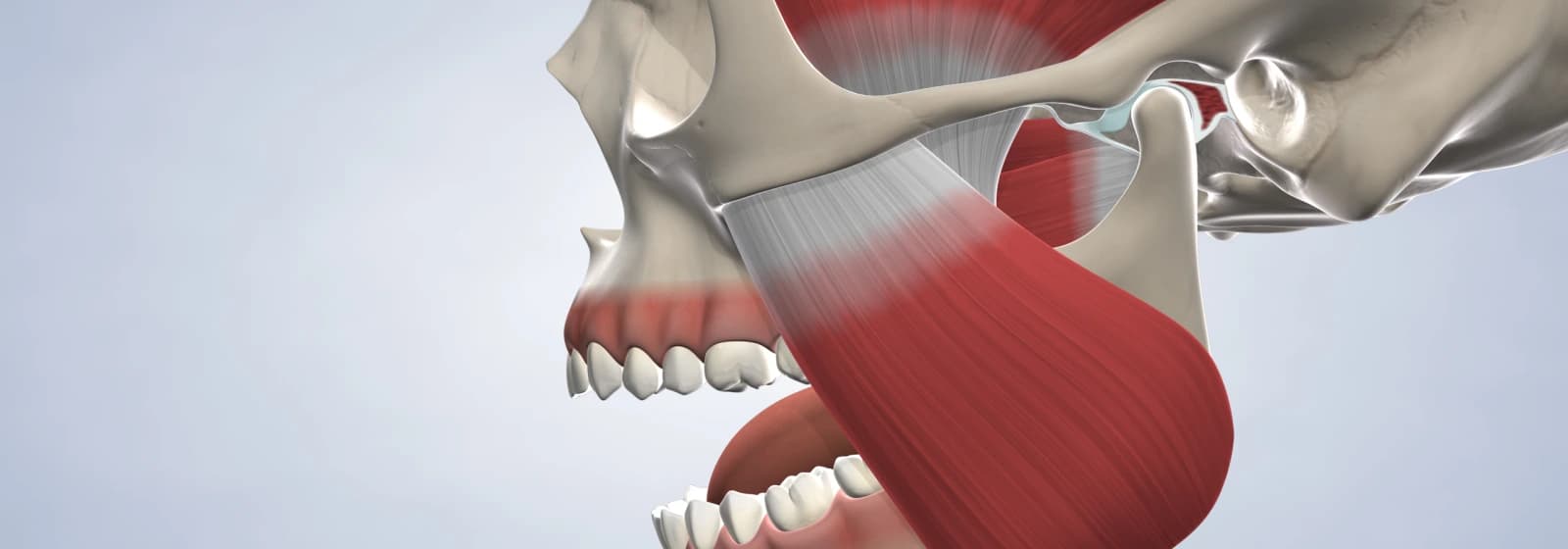The temporomandibular joint (TMJ) is a hardworking joint that allows you to move your jaw, helping you perform everyday tasks such as speaking and eating. Problems with this joint can make it difficult to eat and speak, causing facial pain or headaches that make daily life uncomfortable. At Lubbock Dental Specialists, Dr. Graves and Dr. Wilkinson diagnose and treat TMJ disorders to help you live comfortably and restore proper function to your jaw joint. Contact our office in Lubbock or Amarillo, TX, if you have a TMJ disorder or would like an oral health examination to explore your treatment options.
What Causes a TMJ Disorder?
The TMJ is the most constantly used joint in the body. It is located in front of each ear, where the jaw and skull meet. Within the joint is a small disk made of cartilage that absorbs shock. Everyone has two joints, one on either side of the jaw, and a TMJ disorder may affect one or both of them.
There is not always a clear cause for a TMJ disorder, and more than one factor may contribute to the problem. You may experience a TMJ disorder due to one or more of the following:
- Injury to the face or jaw
- Damaged cartilage of the jaw joint from arthritis, dislocation, or erosion
- Connective tissue disease that affects bony or soft tissues
- Chronic grinding or clenching of the teeth, which adds stress to the joint and leads to disk damage
- Jaw or teeth misalignment
- Muscle inflammation surrounding the joint
Regardless of the cause, treating a TMJ disorder will improve the function of your jaw and relieve the discomfort caused by the disorder.
Symptoms of a TMJ Disorder
A TMJ disorder often causes a variety of symptoms, which can include:
- Jaw pain
- Difficulty opening or closing the mouth
- Headaches or earaches
- Jaw soreness or stiffness
- Clicking or popping sounds when opening or closing the mouth
- Changes in your bite
- Pain when touching the TMJ area
If you experience one or more of these symptoms, we recommend contacting our office for an evaluation to see how we can help manage your symptoms and treat the disorder.
TMJ Treatment
To diagnose a TMJ disorder, we will take 3D scans of the face and jaws to examine the joint. We will almost always recommend non-surgical treatment methods first, as many TMJ disorders respond well to these conservative techniques. These may include wearing a night guard or splint, taking anti-inflammatory drugs or muscle relaxants, or undergoing physical therapy and stress management techniques.
If non-surgical methods do not work, more invasive treatments may be necessary. Prior to any procedure, we will help you select the most appropriate anesthesia option to ensure your comfort. Surgery to treat a TMJ disorder may include:
- Arthrocentesis to clean the joint and reduce inflammation
- Arthroscopy to examine the joint with a small camera and repair it
- Open joint surgery
- Corrective jaw surgery
Schedule an appointment with our oral health experts to find the right treatment for your TMJ disorder and regain the ability to eat, speak, and live comfortably.
Treatment for TMJ Disorders at Lubbock Dental Specialists
Dr. Graves, Dr. Wilkinson, and the caring team at Lubbock Dental Specialists are committed to helping you find lasting relief from TMJ discomfort and improving your oral health. If you’re experiencing TMJ symptoms or have been diagnosed with a TMJ disorder, schedule a consultation at our Lubbock or Amarillo, TX offices to explore personalized treatment options.

